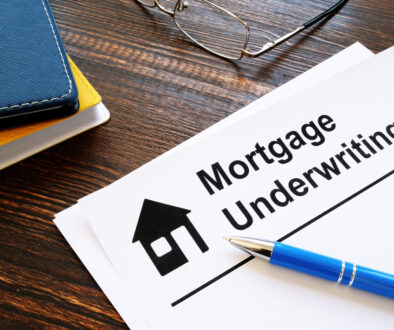Fixed Rate Vs. Adjustable Rate Mortgage
When it comes to selecting a new mortgage, one of the biggest single factors is the mortgage rate you can get. This rate, which refers to the interest rate at the time of closing, will vary based on a few factors, including your credit score, the type of loan you choose, and others.
At Primary Residential Mortgage in Shoreline, we have a wide variety of mortgage rates available in a variety of loan types. The broadest decision you have to make here? Whether to go with a fixed or adjustable rate on your mortgage. Here are some basics, pros and cons of each.
Fixed Rate Mortgages
A fixed-rate mortgage means that the rate you start with at closing of the mortgage remains consistent throughout the life of the loan. It can never adjust up or down, regardless of how market conditions fluctuate. Some benefits here:
- Planning: With a fixed-rate mortgage, it’s much easier to plan for the future. You know your mortgage amount will never change each month, so you can plan in several areas more easily.
- Simplicity: In a broad sense, fixed-rate loans are simply easier to understand. This can be valuable for first-time buyers who want to understand every element of the process.
For these reasons, fixed-rate mortgages are also often great for long-term buyers who plan to remain in the same home for a long period of time.
Fixed-rate mortgages do have some potential drawbacks for some people, however. They tend to start with higher initial rates than adjustable-rate mortgages, for reasons we’ll go over later on. There are also situations where market rates go so low during a fixed-rate mortgage term that borrowers will be forced to refinance to take advantage of these rates, though these instances are rare.
Adjustable-Rate Mortgages
Adjustable-rate mortgages, abbreviated ARM, are also called hybrid ARMs in some cases. These loans start with the same type of fixed rate at closing time, but after an introductory period, the rate becomes adjustable for the rest of the loan. This means it might rise or fall based on a standard market index – there are caps to how much it can rise at once or during the life of the loan, but these are fairly high. Some of the benefits of ARMs include:
- Great rates: Rates for ARMs tend to start lower, as there’s more risk to the borrower.
- No refinancing: If index rates drop on the market during the loan, you won’t have to refinance to take advantage of lower payments.
Because of these benefits, ARMs are often great for home-flippers – they can take advantage of the low initial rates, but then be out of the home before the introductory period ends and variable interest rates kick in. While there’s always a risk of rates rising or negative amortization (you owing more on the loan than you did at closing), the possible benefits if you know how to navigate these waters can be great. ARMs are generally best for people who won’t live in the home long. For more on the differences between fixed and adjustable mortgage rates, or to learn about any of our home loan services, speak to the pros at Primary Residential Mortgage in Shoreline today.




